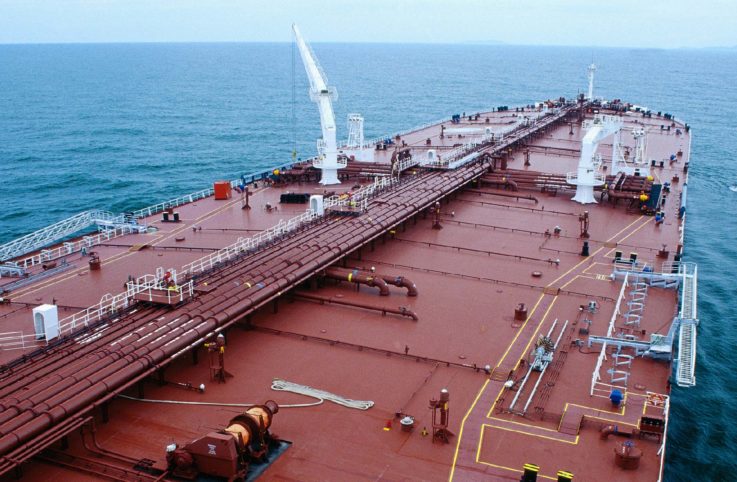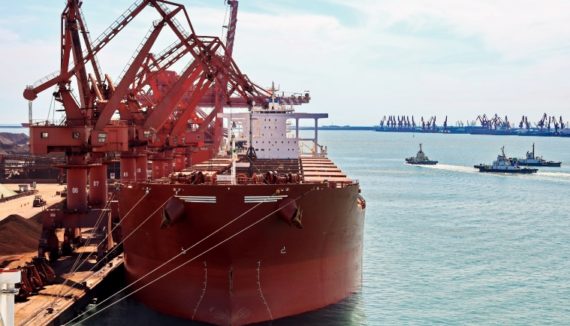Did you know that over 96% of all manufactured goods are directly influenced by the chemicals sector? Every day, chemical carriers, commodities traders, and producers around the world are carefully navigating numerous commercial and material complexities to deliver a wide array of essential chemicals that impact nearly every facet of modern life.
As the chemicals sector evolves, its value chain is becoming increasingly contingent on fluctuating international consumer demand and activity in end-markets. In addition to the inherent complexity that comes with transporting potentially reactive cargoes, growing market volatility has highlighted the need for a robust and agile approach to the commercial management of tanker fleets and chemical cargoes. More than ever before, players in this space need the ability to track each aspect of their supply chain and act with agility in the face of an evolving market.
In this blog post, we’ll uncover three unique realities of the chemicals shipping market and what they require from a commercial solution.
Reality 1: Fluctuating Global Demand
The success of the chemical industry relies on global demand, and the unprecedented events of 2020 have resulted in significant demand shifts, creating volatility in chemical trade. Going into the year, industry observers were expecting low-to-flat growth in the chemicals industry for the year due to headwinds such as trade disputes and slower development in several key end-markets. This outlook was exacerbated by the Coronavirus pandemic, which crippled global demand, accelerated oversupply, and caused significant disruptions to supply chains.
Though the pandemic dealt blows to global demand in many end-markets, surging demand for chemical products and materials needed to combat the outbreak has partially offset these weaknesses and allowed for some economic recovery in the latter half of the year. Overall, the chemicals sector is expected to see reduced demand for the remainder of 2020, with a potential rebound in growth predicted for 2021.
A key takeaway from the volatility experienced in recent months only serves to underline how chemical leaders must adapt quickly to shifts in global supply and demand, recognize and execute on new growth opportunities, and optimize existing assets and resources to drive profitability and control costs.
To make the best possible business decisions amid volatile and constantly shifting market conditions, chemical leaders need a commercial solution that arms them with real-time market data at every point of the voyage or cargo lifecycle. A commercial solution should also provide flexibility and agility in negotiating contracts and adjusting prices, automating complex pre-fixture calculations and accelerating pricing processes to maximize cargo or voyage profitability in the context of fluctuating markets.
Reality 2: Commercial and Material Complexity
The chemicals sector has always been rife with complexity. A single voyage can contain upwards of 15 different parcels aboard, often stopping at multiple different ports to load and discharge cargoes for multiple customers. Further adding to this complexity are transshipments, which happen quite regularly and add additional layers to the voyage that must be tracked and managed.
Chemical cargoes tend to be reactive, especially when combined with other agents, and therefore require precise and cautious commercial and material management to ensure safety and purity of cargoes. This means diligently assessing compatibility between cargoes onboard as well as between the previous and next cargoes loaded to plan the necessary tank cleaning activities at port.
Properly managing the material compatibility of a variety of different chemical cargoes requires an understanding of unique cargo requirements and vessel history through meticulous tracking and reliable data. The ideal commercial solution will maintain all relevant data in one integrated system and automatically consider material incompatibilities throughout the voyage planning process to ensure the safety and integrity of voyages and cargoes.
Reality 3: Strengthening Sustainability Imperatives
The chemicals sector boasts a long history of improving our standard of living, from enabling access to clean, affordable water and food to powering carbon free transportation. However, as consumer activism and environmental regulations continue to pick up pace, chemical leaders are investing more time and resources into long-term sustainability objectives.
On the owner-operator side of the contract, these include decarbonization and optimizing voyage and vessel performance. On the tonnage charterer side, these include a focus on transitioning energy supplies to renewable sources, developing closed-loop recycling processes, and continuing to focus R&D efforts on products that support CO2 reduction and an end to plastic waste altogether.
To learn more about how you can gain visibility into the potential environmental impact of your voyages within the Veson IMOS Platform, click here to download our Product Capability Spotlight on the CO2 Emissions Calculator functionality.
Though the COVID-19 pandemic and market volatility are creating headwinds to some sustainability initiatives, the chemicals sector does possess the strength in innovation and resilience required to drive responsible value chains despite current challenges. By leveraging the connectivity and visibility enabled by technology, chemical leaders can better understand the impact of current operations and initiatives as well as identify gaps. This enables organizations to enhance the efficiency of their operations today while also positioning themselves to take advantage of new efficiencies in the future as the industry continues to transform.
Agile Commercial Management with the Veson IMOS Platform (VIP)
Maritime shipping in the chemical industry not only requires precise commercial management, it also requires vessel owners, operators, commodities traders, and tonnage charterers to track and manage cargo characteristics with complete confidence.
As the chemical industry’s platform of choice for agile commercial management of tanker fleets and chemical cargoes, the Veson IMOS Platform is unrivaled in its ability to handle complexity at scale. From simplifying multiparcel voyages, to managing material incompatibilities, to automating complex chartering calculations, VIP empowers chemical leaders with the tools they need to optimize business decisions and operations.




